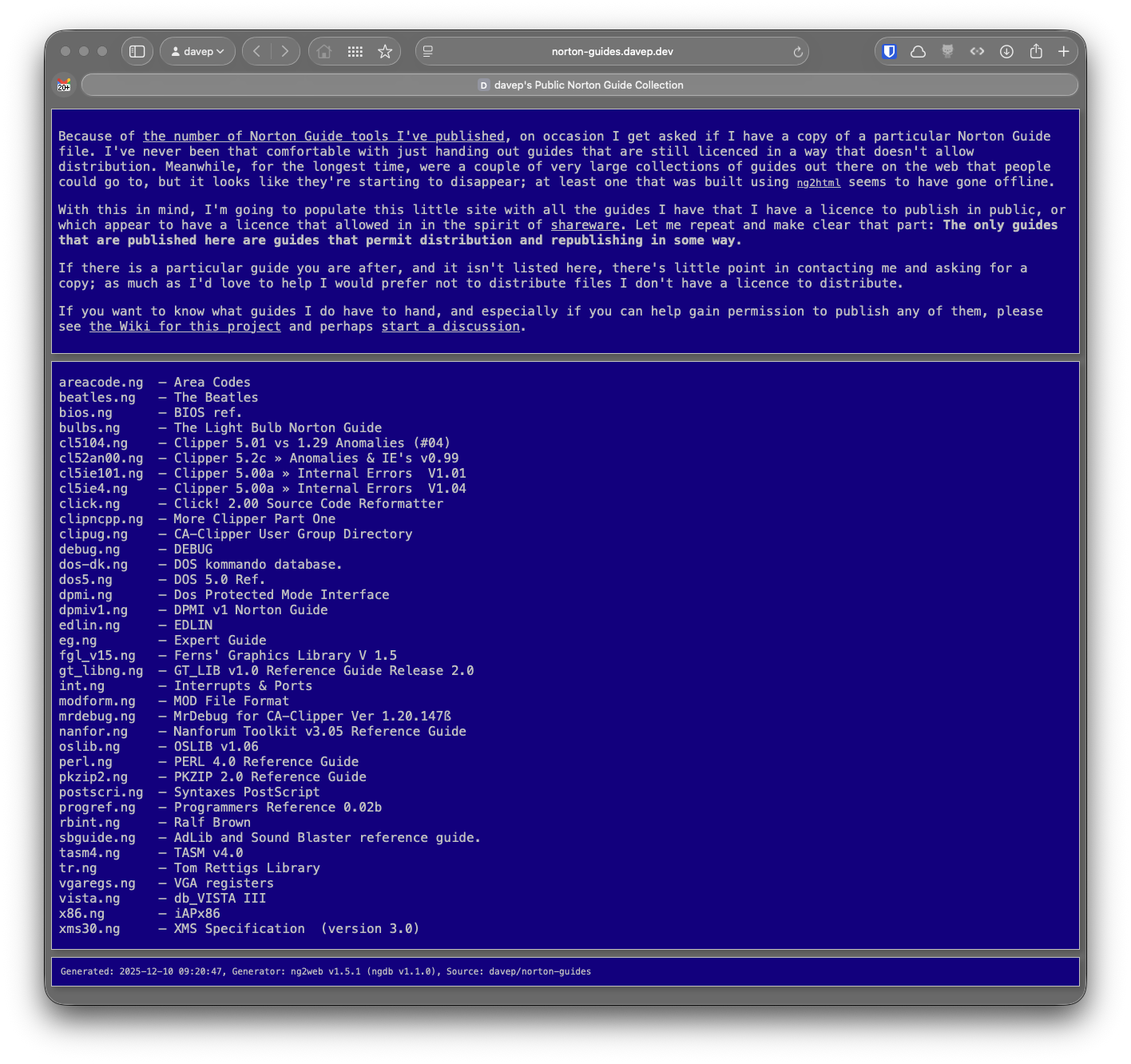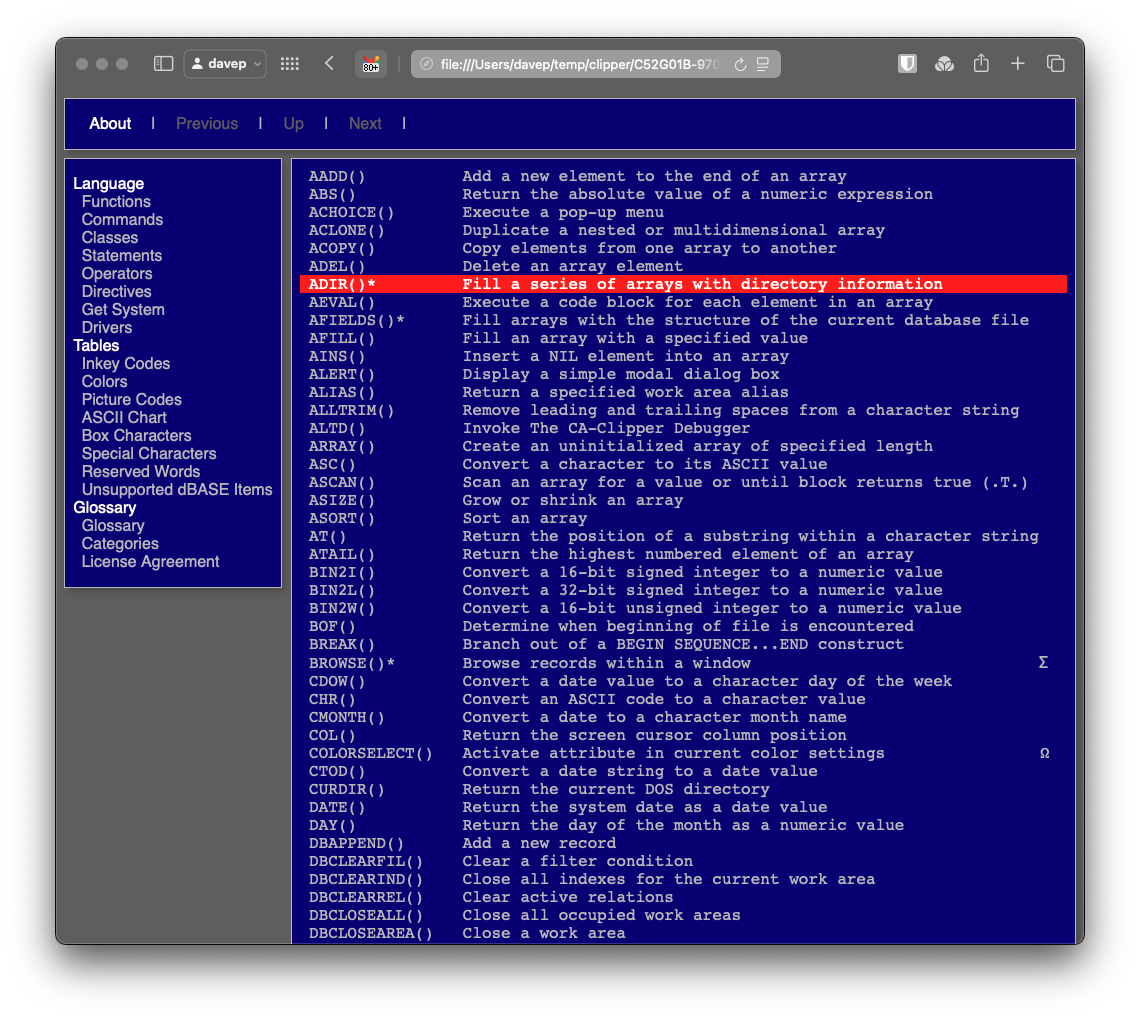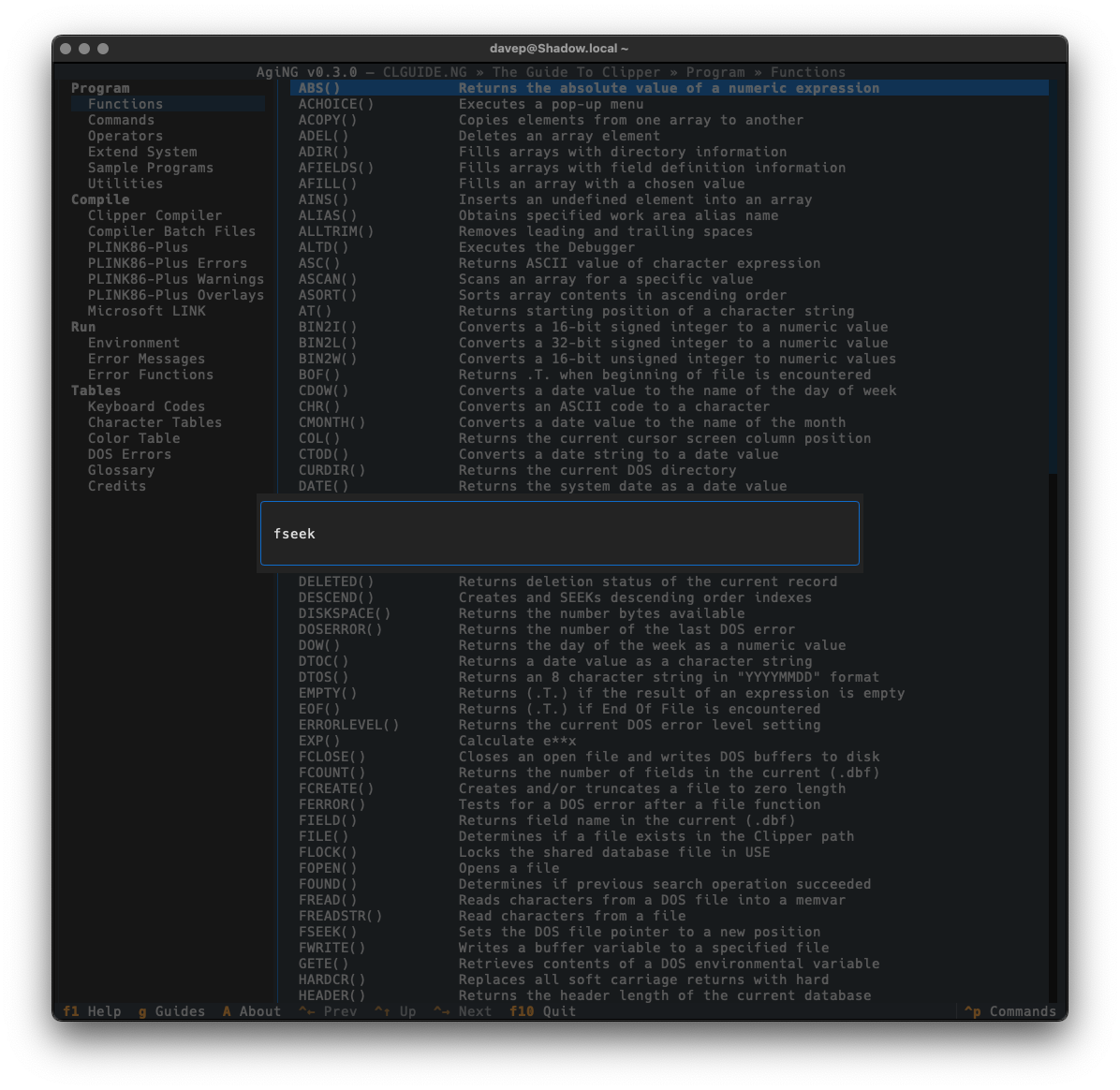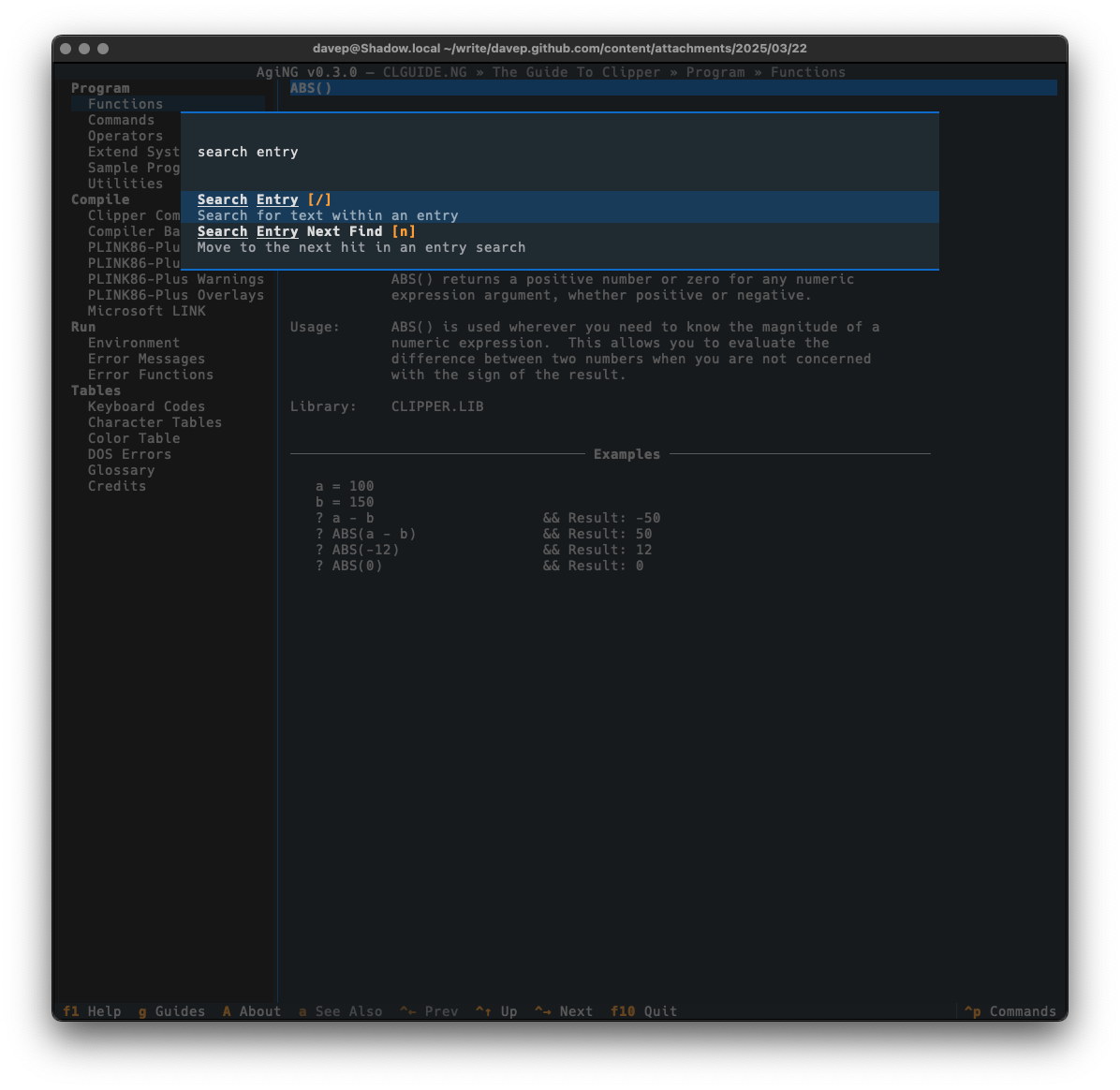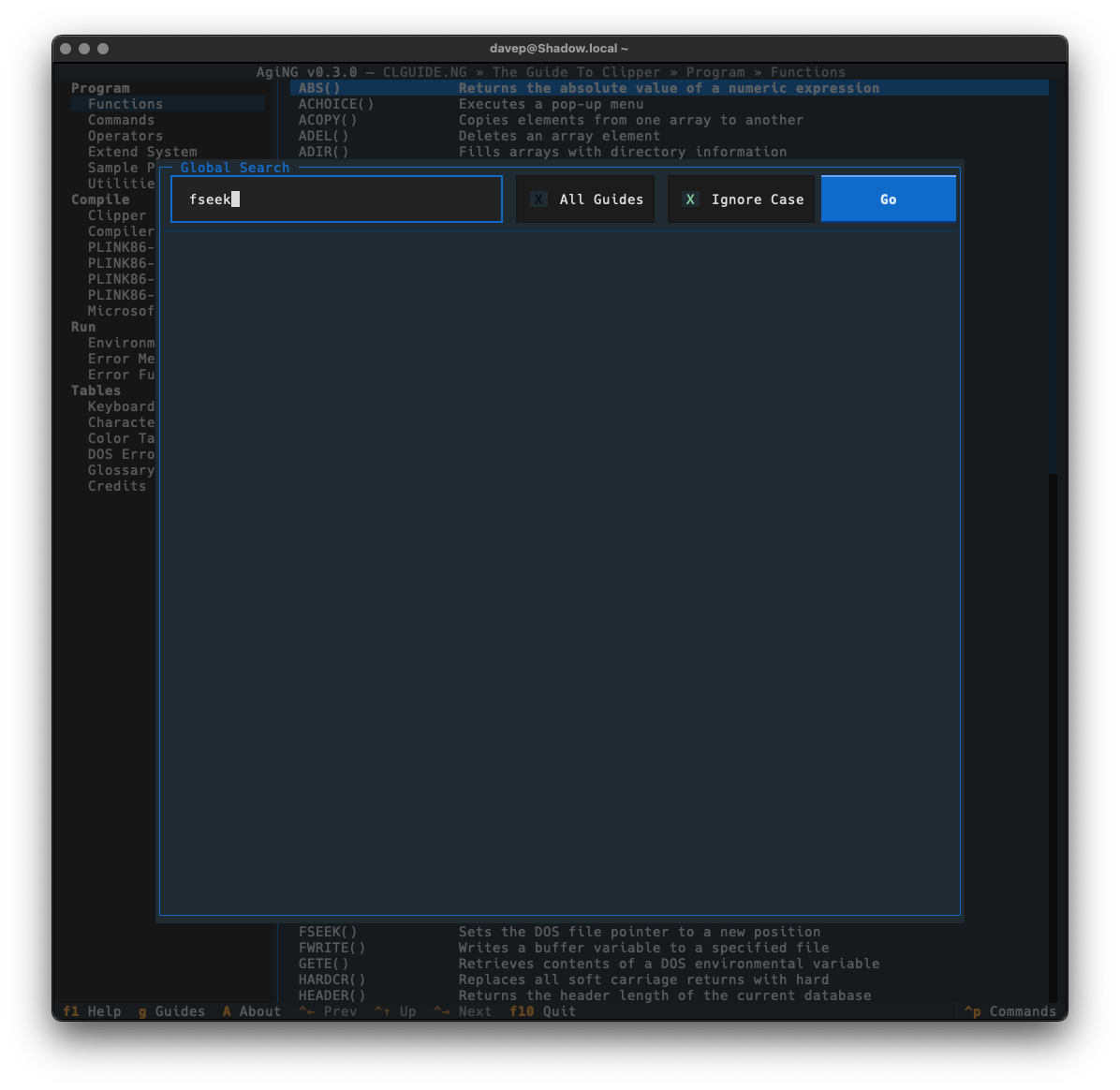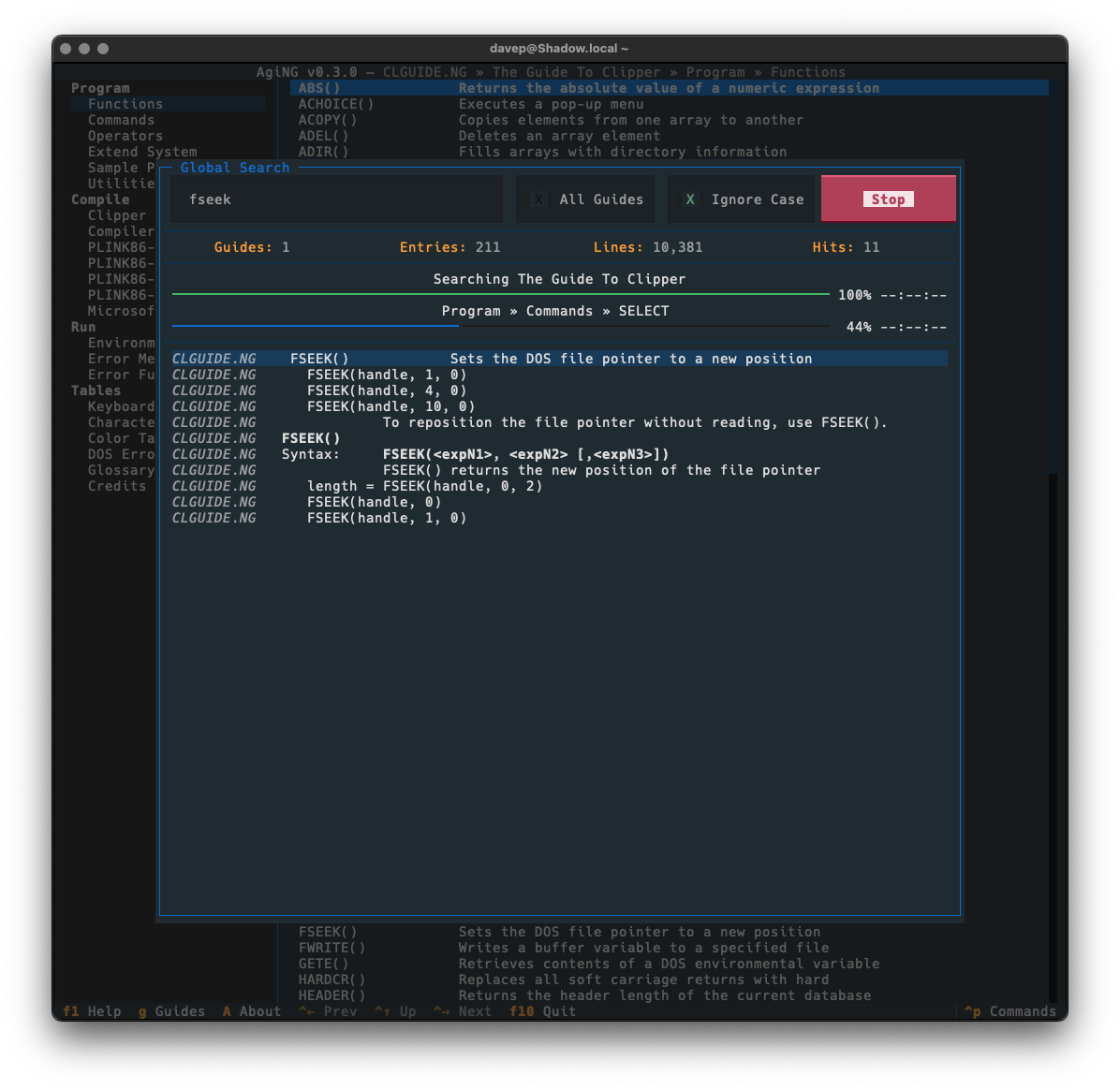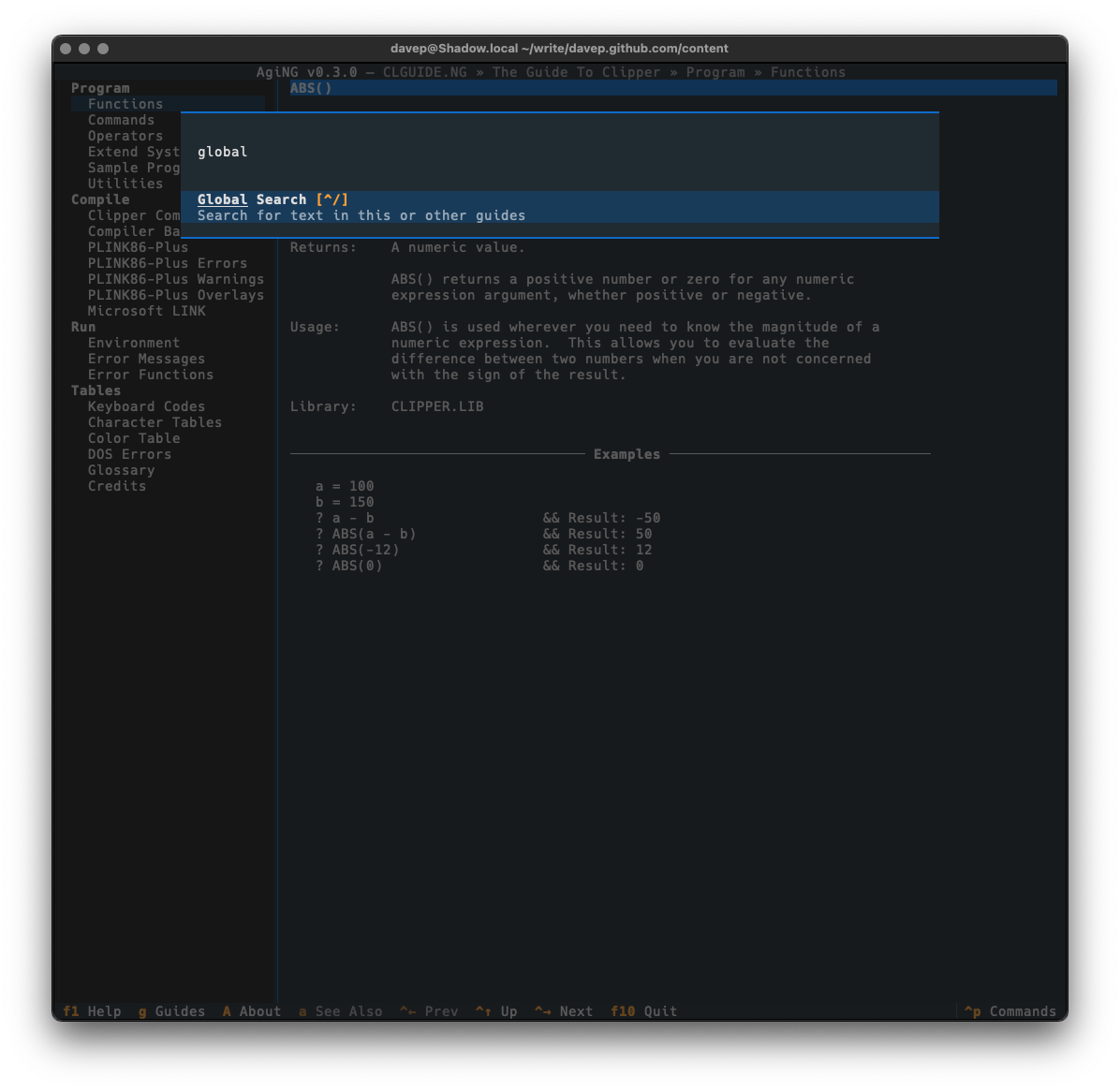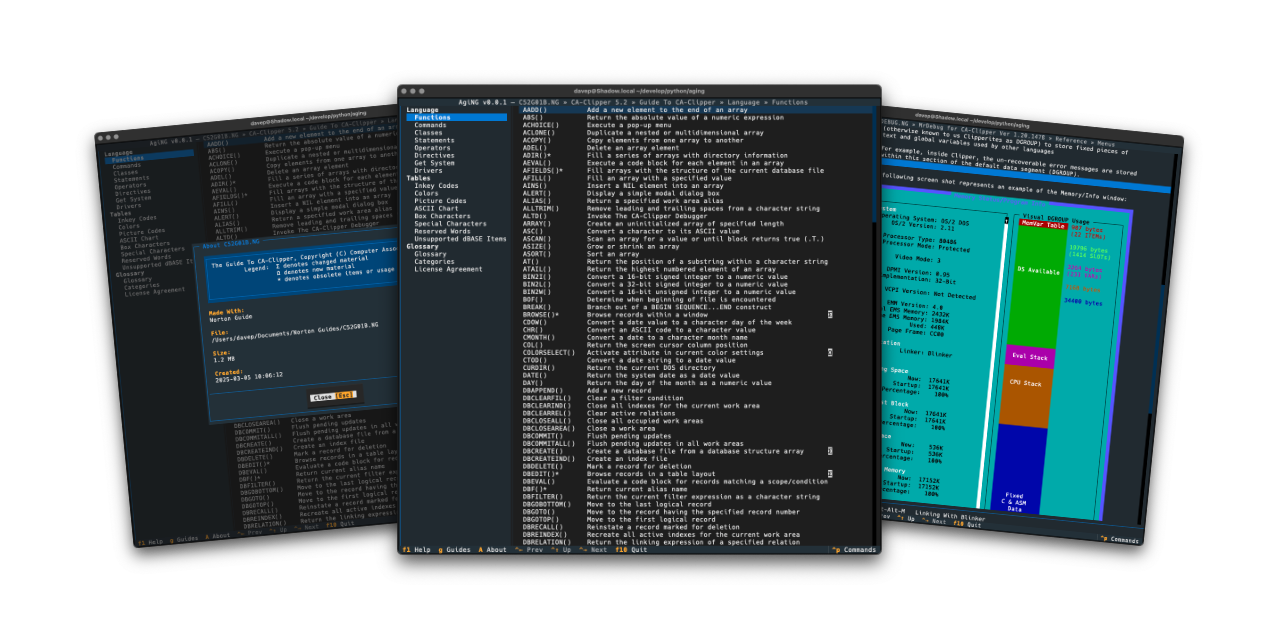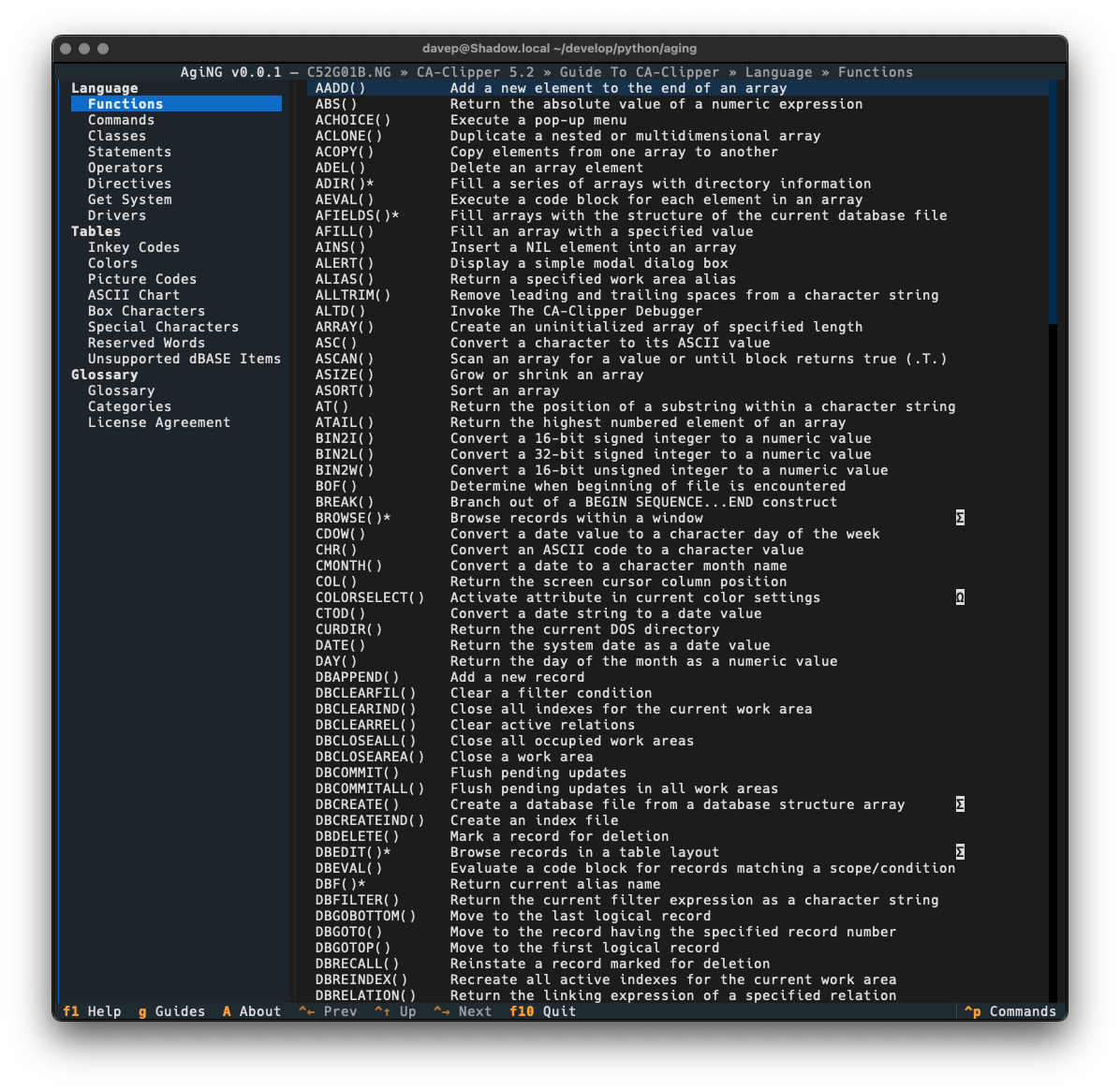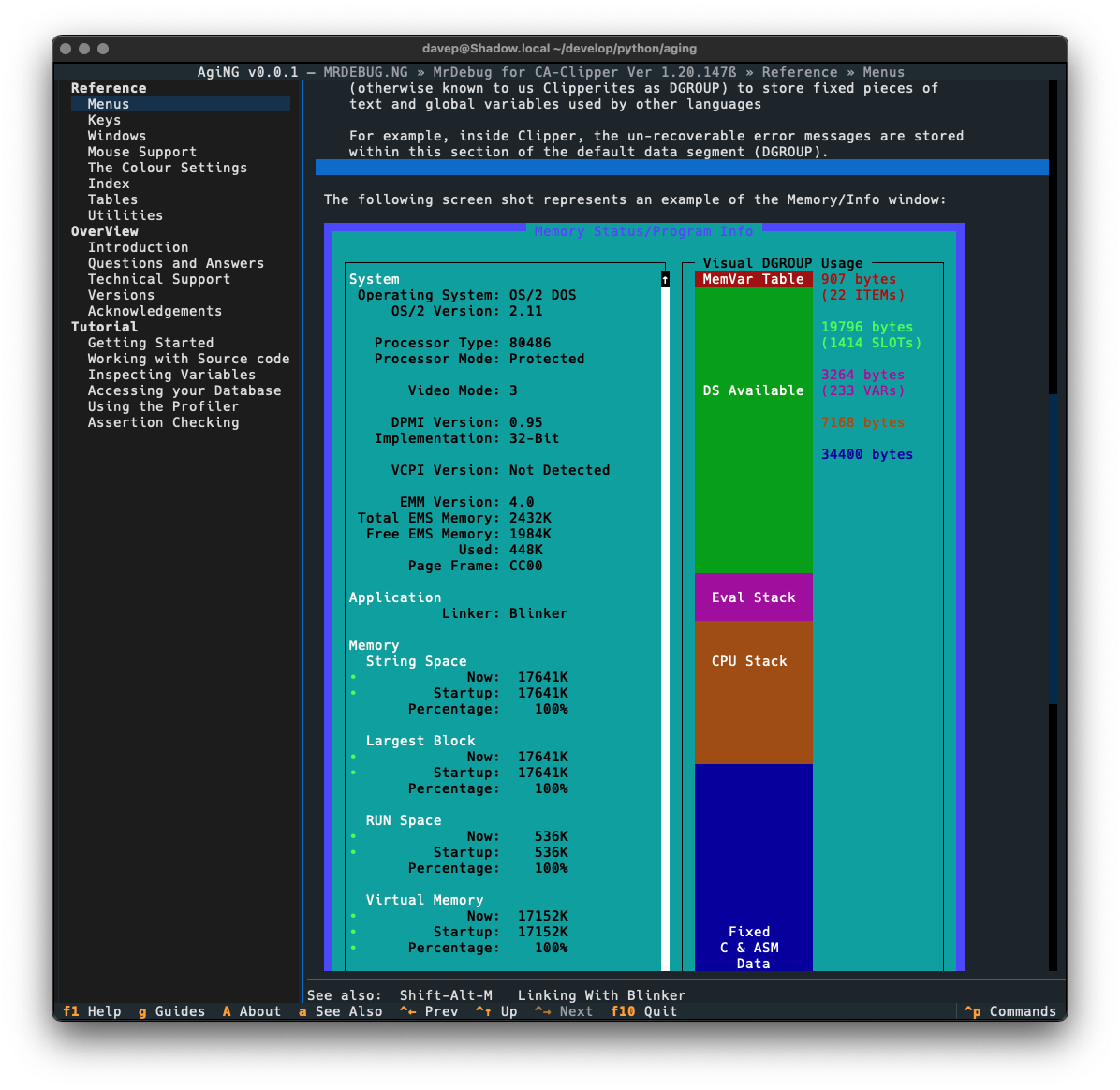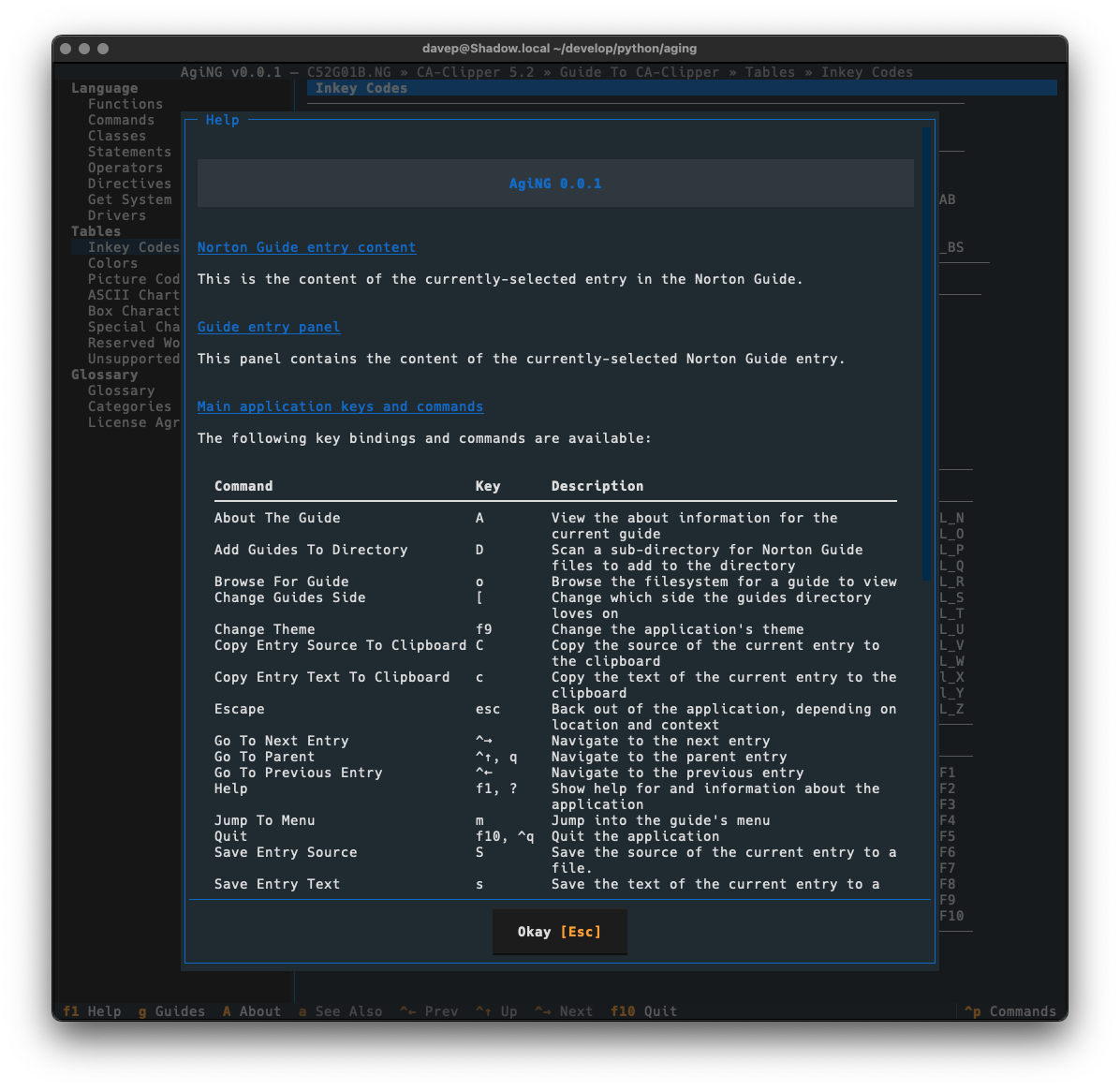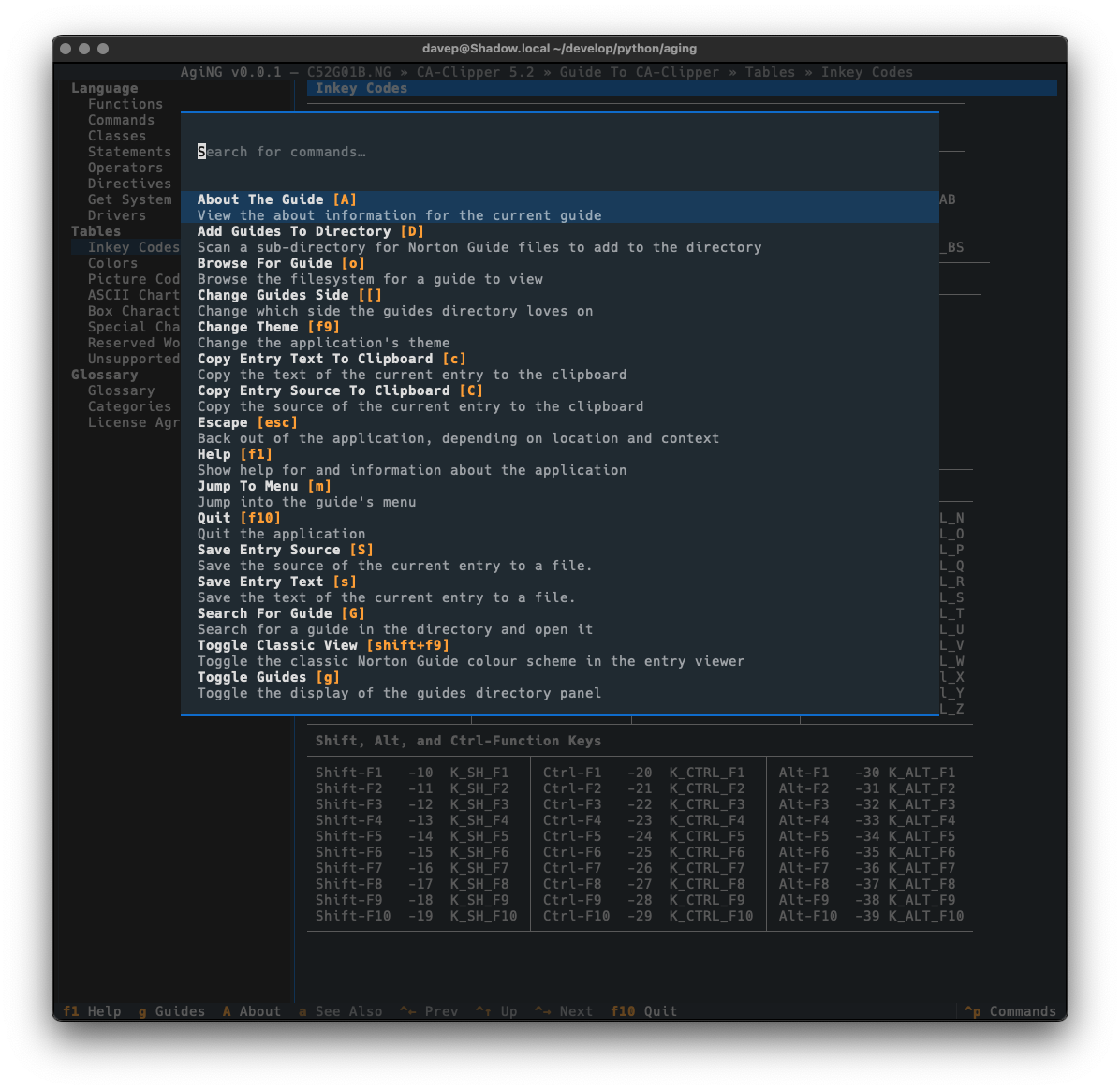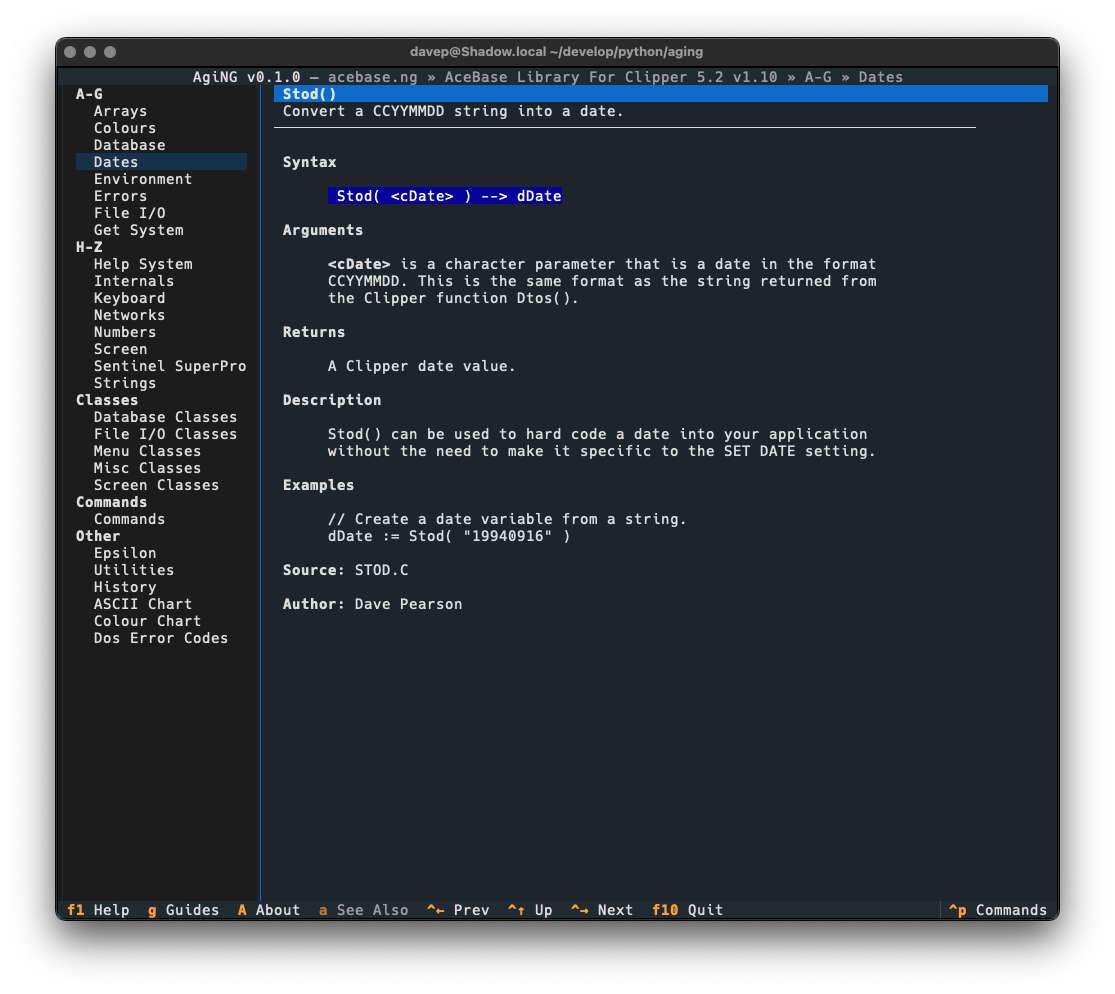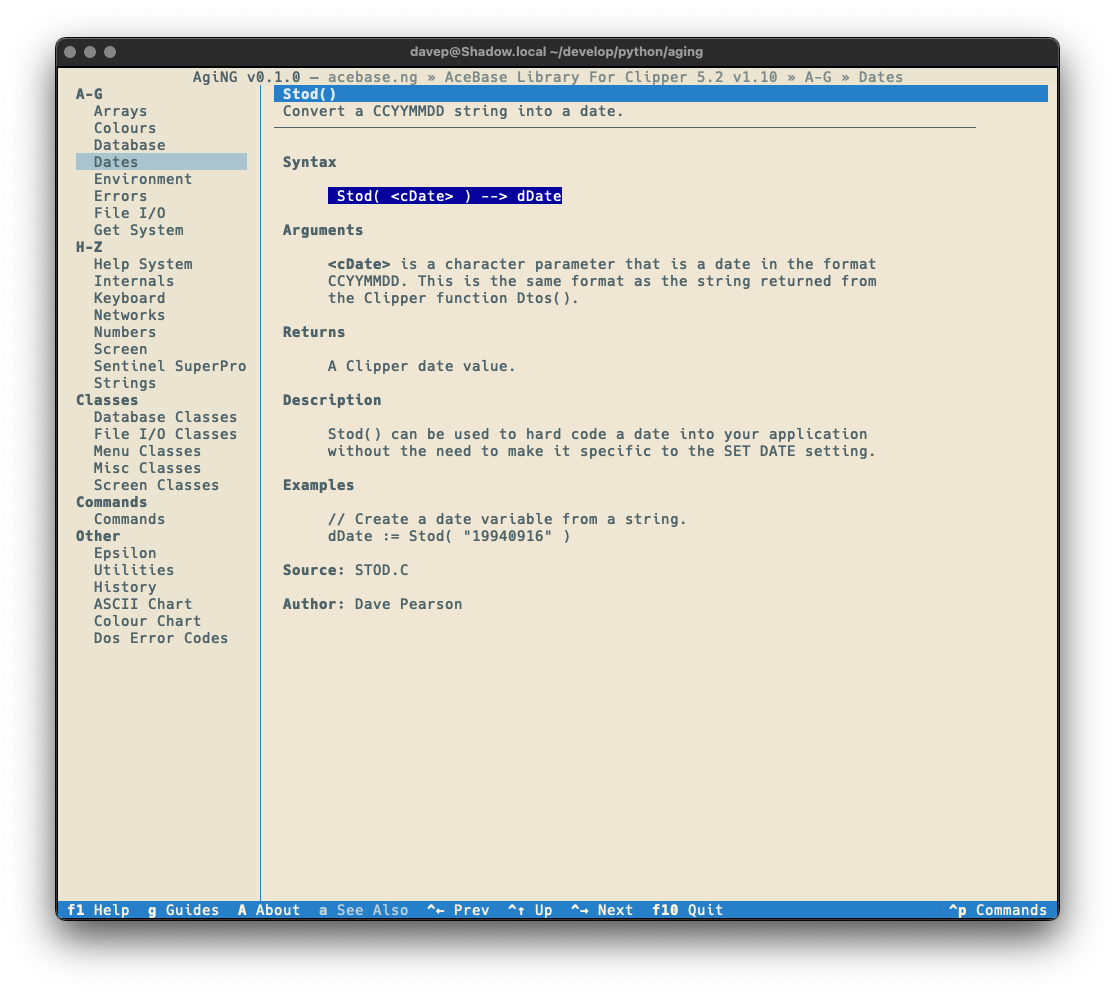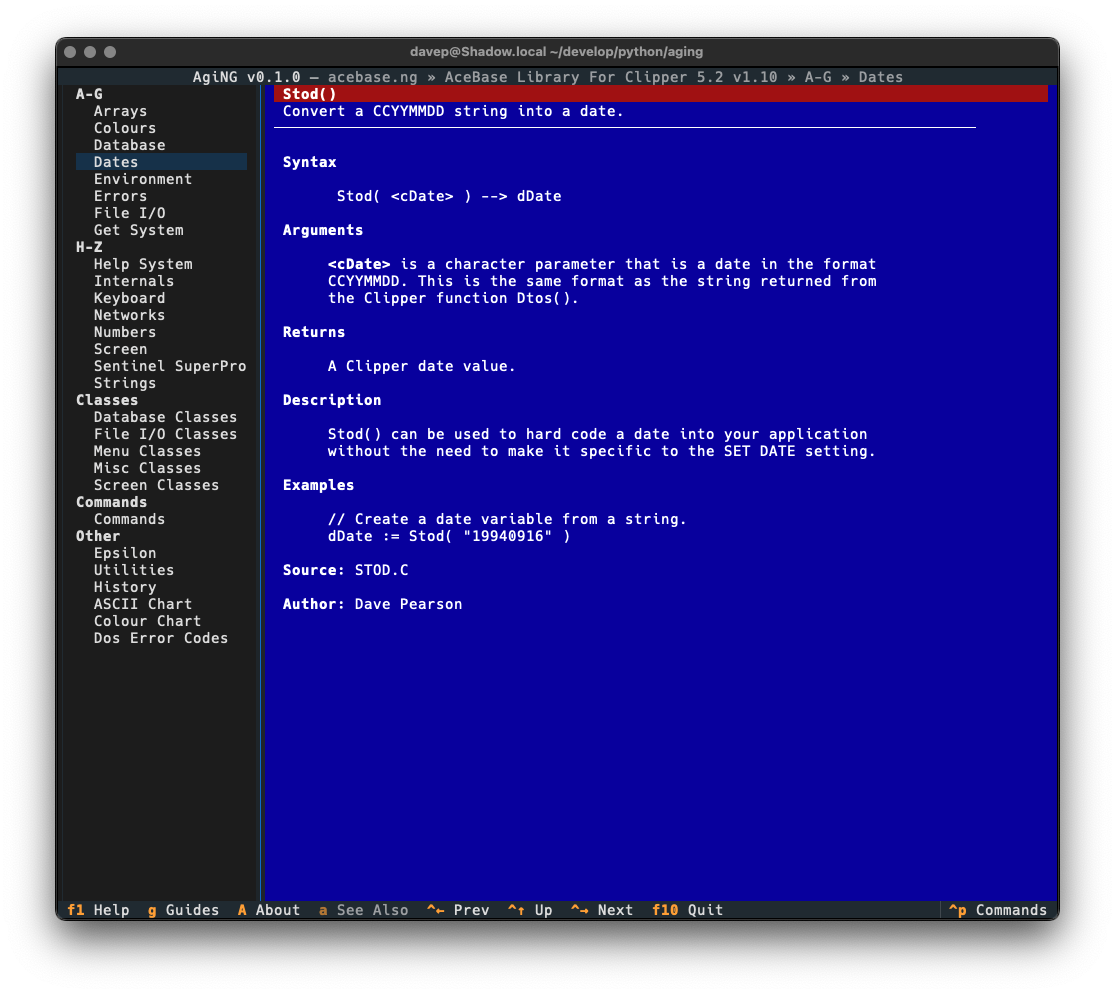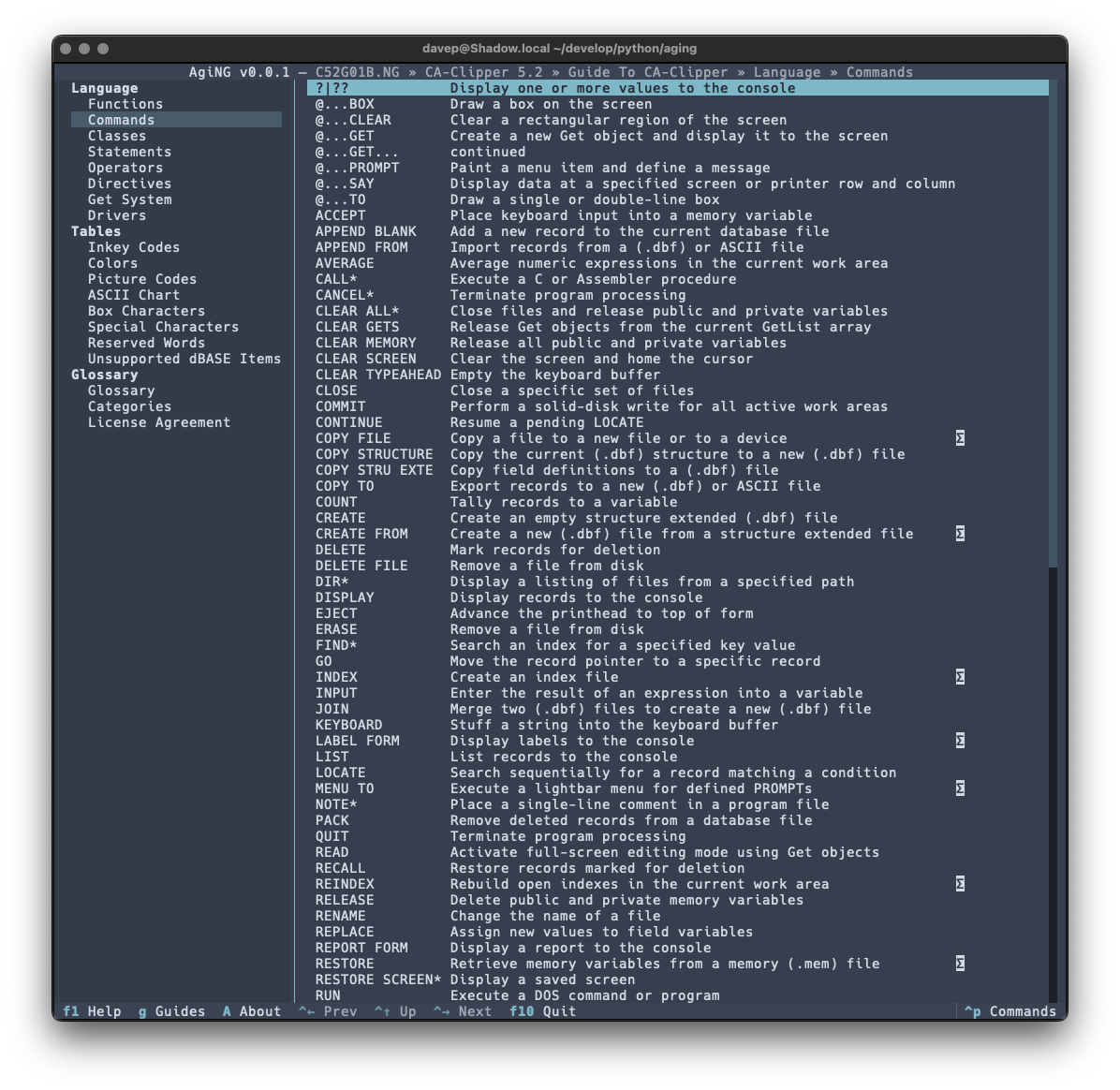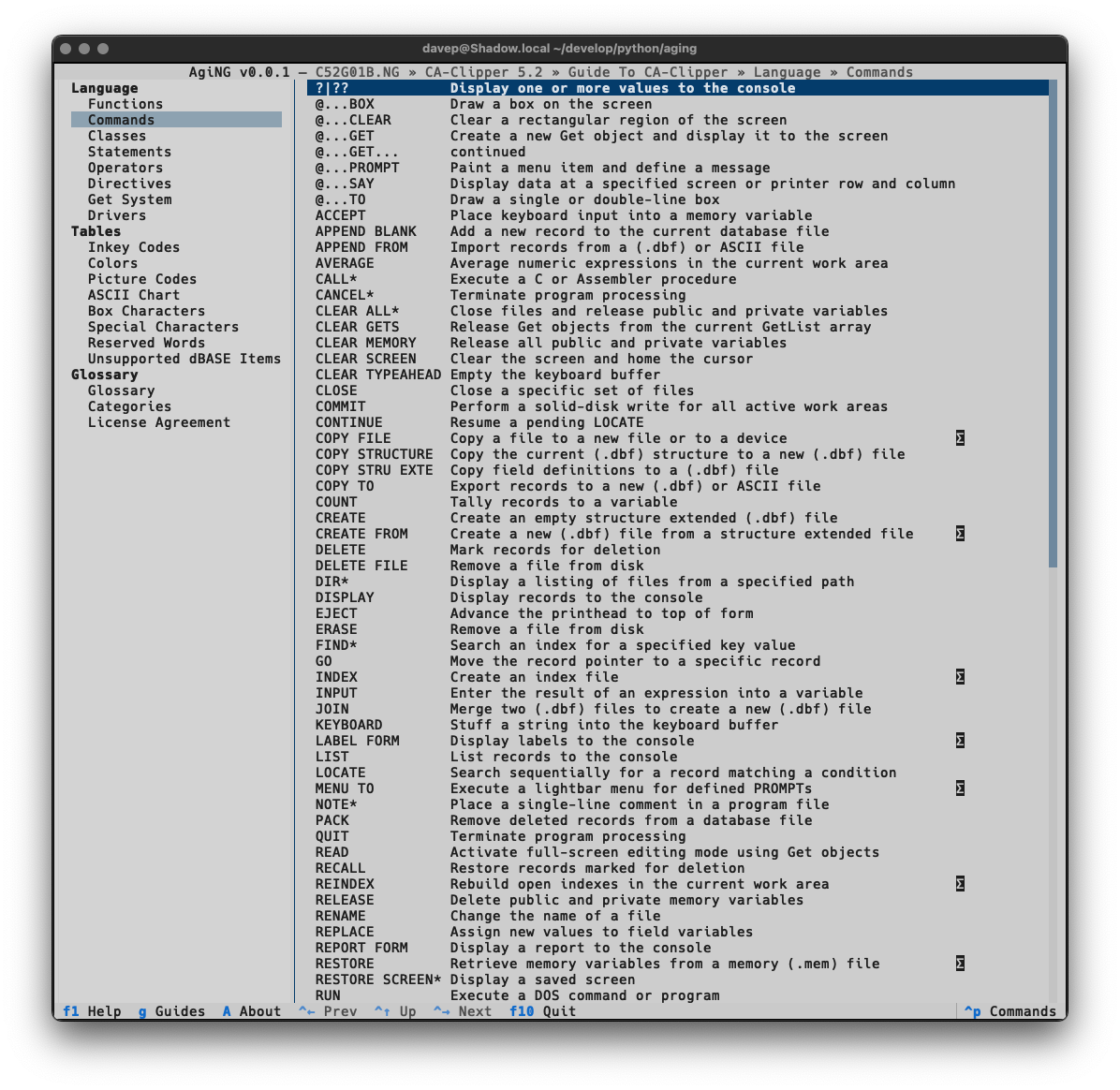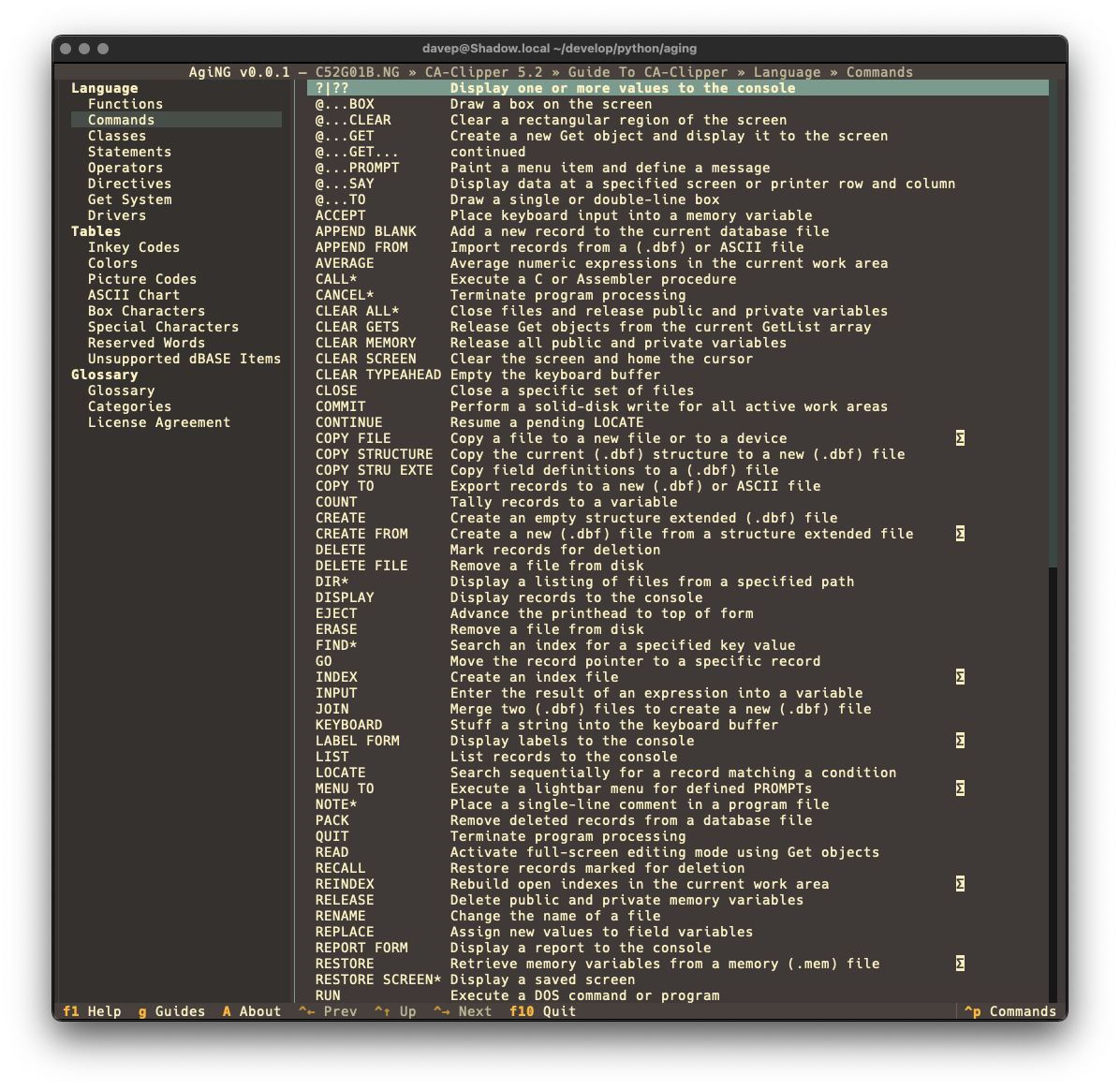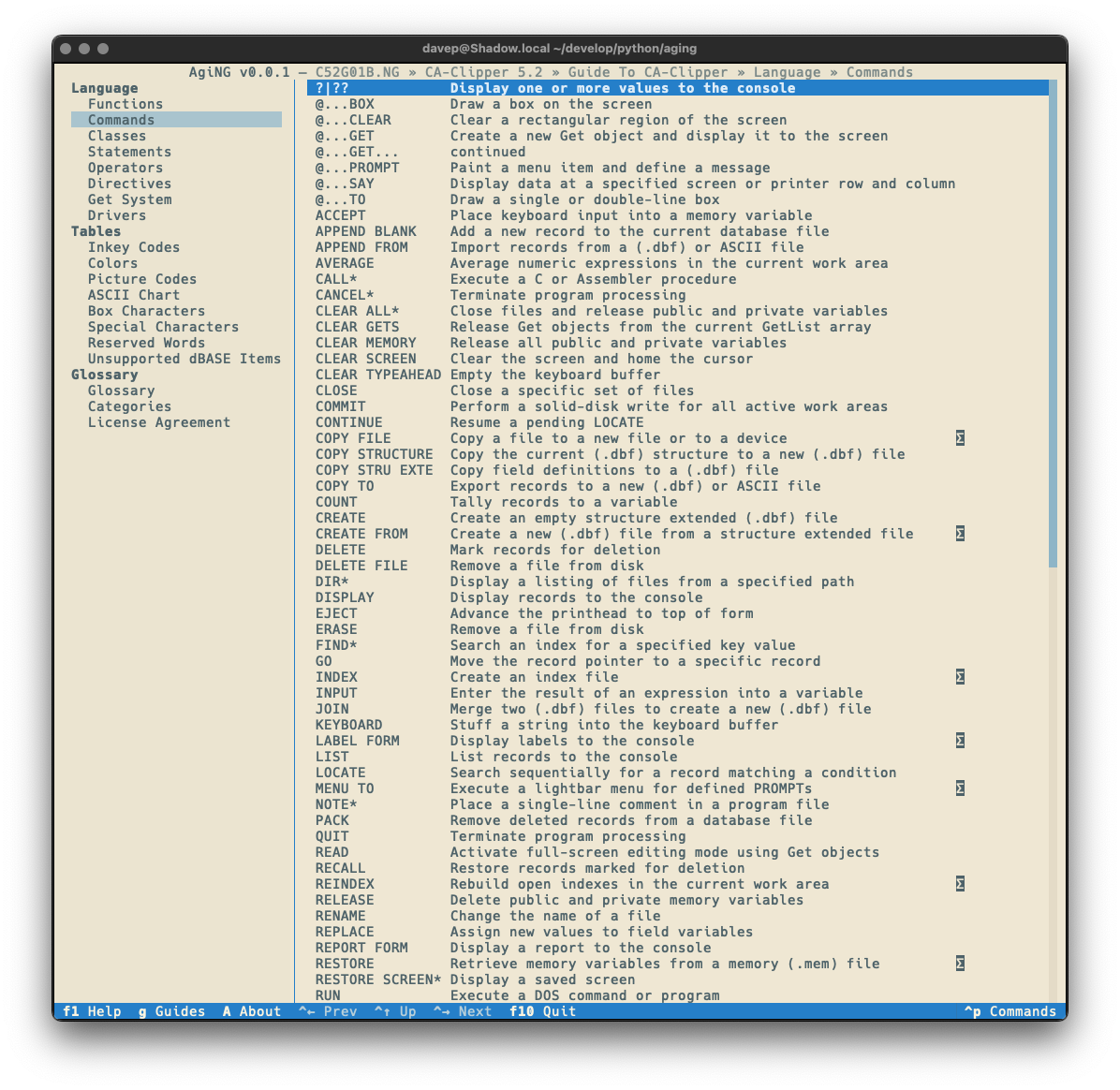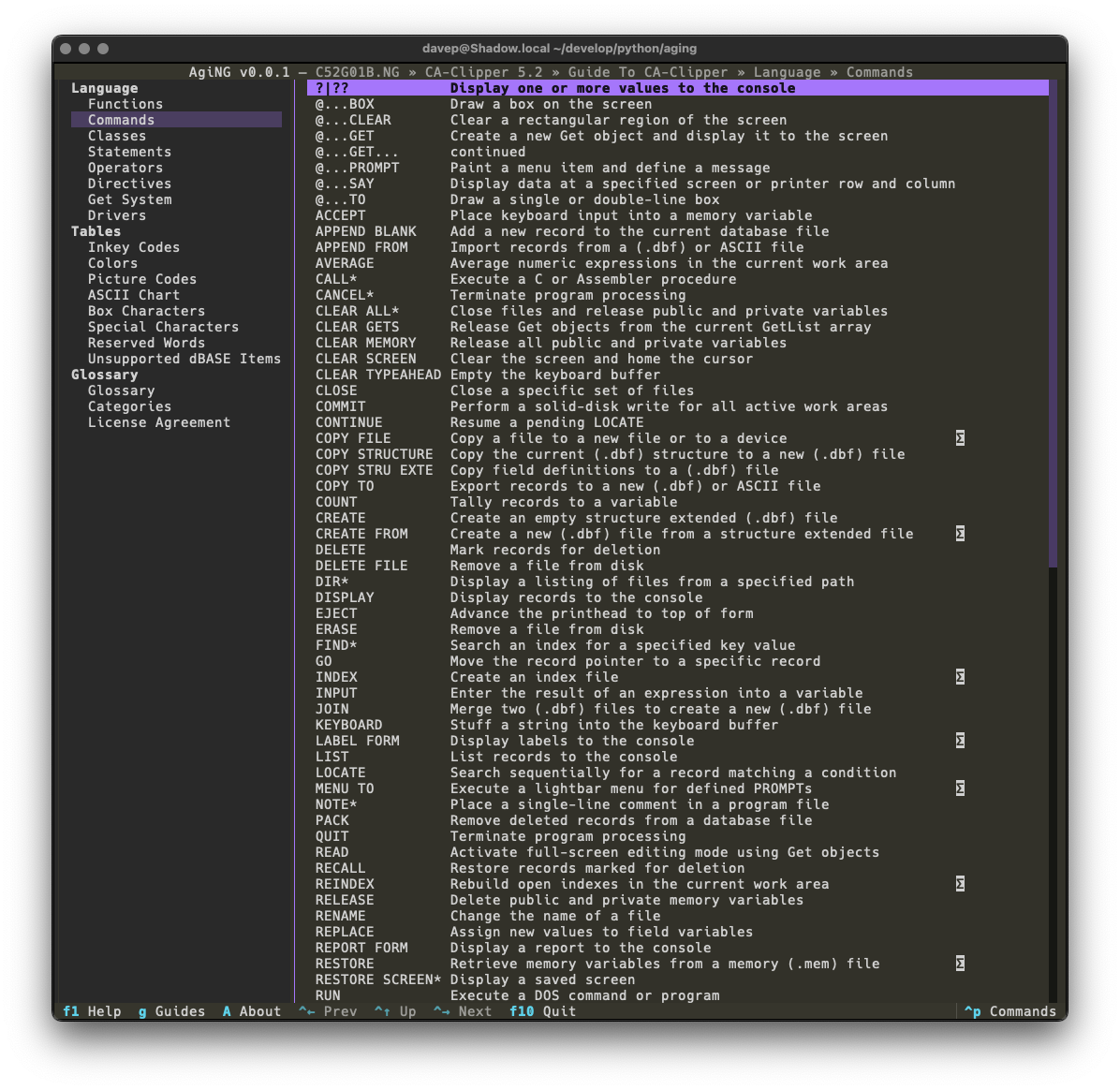After having knocked up obs2nlm the other day I realised there was another source of sources available to me that might be fun to throw into NotebookLM: one or more of the Norton Guide files in my collection!
And so, after a wee bit of hacking on a wet Sunday afternoon,
ng2nlm was born.
In terms of what it does, it's pretty much the same as obs2nlm, only it
uses ngdb to read the contents of a Norton Guide
and turn it into a single Markdown file which can then be used as a source
in NotebookLM.
So far it seems to be working a treat.

Here I grabbed the guide to assembly language Norton Guide, and the DOS interrupts Norton Guide, turned them into sources, created a notebook and let it do its thing.
I can't vouch for how valid the answer to my question is -- it's a long time since I wrote any 8086 assembler code and it's a moment since I last had to dig into DOS interrupts and the like -- but I like the result.
Probably the biggest issue I see at the moment is with the code examples: it seems to have a habit of adding some sort of citation marker that links to nowhere when it's emitting code. I think this is down to the instructions I've given it in the source I output, at least that's what it's suggesting when I ask it:
Me: What are all the numbers in square brackets for?
NotebookLM: The numbers in square brackets are passage indices used to cite which specific part of the sources supports each statement [Instruction]. Within the source files themselves, these markers identify distinct entries or sections within the Norton Guide databases.
Given I am trying to encourage it to cite its sources, I think this is where the confusion comes from. In "normal" paragraphs it does do a good job of citing its source and linking to it:

so presumably, when it "thinks" it's outputting code it doesn't do the markup to actually do the linking, and so things end up looking a little confused.
If I ask that citations aren't included in the code, this does seem to have the desired effect:

So, given this, perhaps I can use the
--additional-instructions
switch for the particular source to encourage it to not add citation links
to code? Or of course I could tweak ng2nlm itself to include that
instruction to start with. While it's a little specific to one use case,
Norton Guide files do tend to be coding-related so it could make sense.
Anyway, in the very unlikely event that you have a need to turn one or more
Norton Guide files into sources to throw at NotebookLM or similar tools:
ng2nlm exists.
